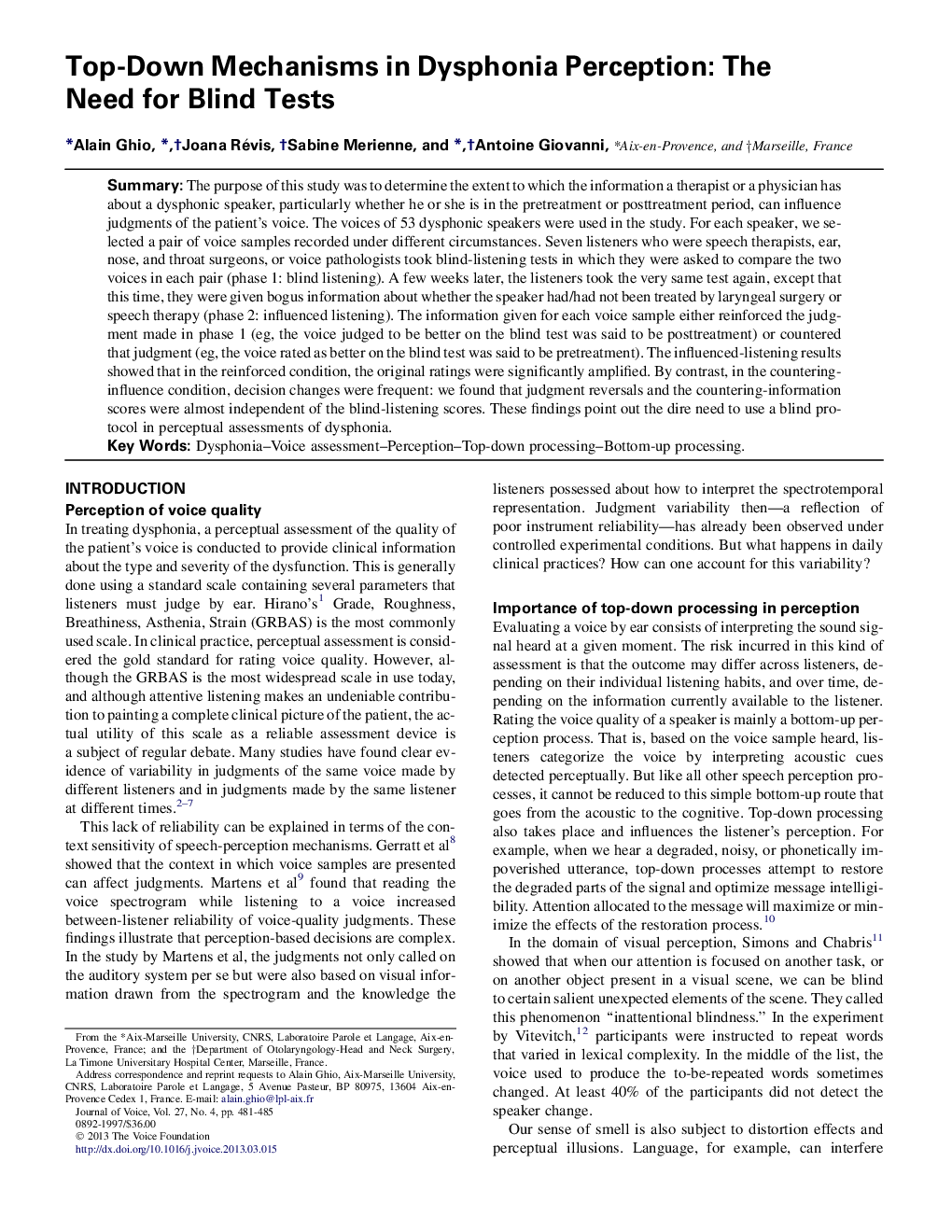| Article ID | Journal | Published Year | Pages | File Type |
|---|---|---|---|---|
| 1102112 | Journal of Voice | 2013 | 5 Pages |
Abstract
The purpose of this study was to determine the extent to which the information a therapist or a physician has about a dysphonic speaker, particularly whether he or she is in the pretreatment or posttreatment period, can influence judgments of the patient's voice. The voices of 53 dysphonic speakers were used in the study. For each speaker, we selected a pair of voice samples recorded under different circumstances. Seven listeners who were speech therapists, ear, nose, and throat surgeons, or voice pathologists took blind-listening tests in which they were asked to compare the two voices in each pair (phase 1: blind listening). A few weeks later, the listeners took the very same test again, except that this time, they were given bogus information about whether the speaker had/had not been treated by laryngeal surgery or speech therapy (phase 2: influenced listening). The information given for each voice sample either reinforced the judgment made in phase 1 (eg, the voice judged to be better on the blind test was said to be posttreatment) or countered that judgment (eg, the voice rated as better on the blind test was said to be pretreatment). The influenced-listening results showed that in the reinforced condition, the original ratings were significantly amplified. By contrast, in the countering-influence condition, decision changes were frequent: we found that judgment reversals and the countering-information scores were almost independent of the blind-listening scores. These findings point out the dire need to use a blind protocol in perceptual assessments of dysphonia.
Related Topics
Health Sciences
Medicine and Dentistry
Otorhinolaryngology and Facial Plastic Surgery
Authors
Alain Ghio, Joana Révis, Sabine Merienne, Antoine Giovanni,
